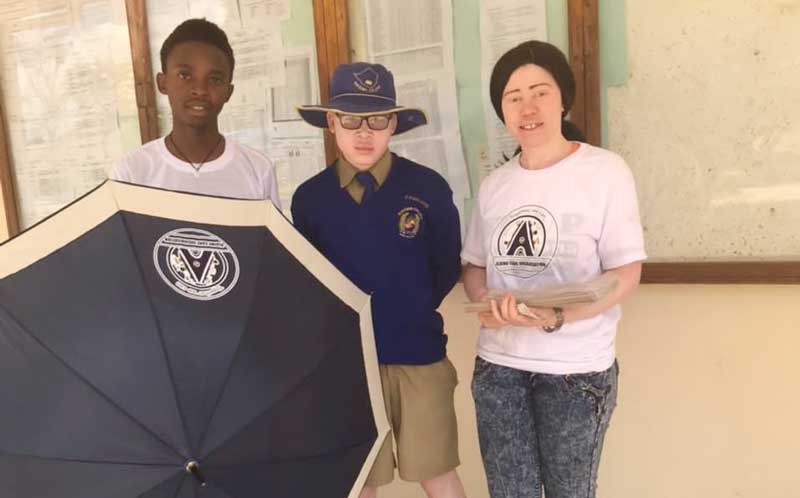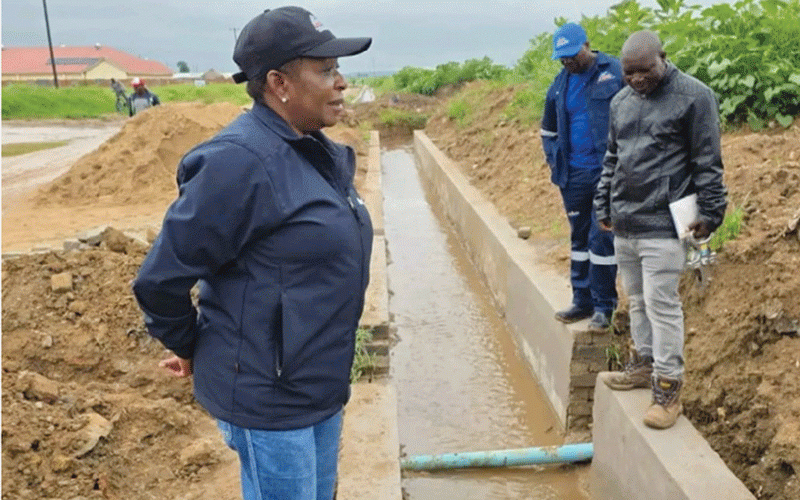
PEOPLE with disabilities continue to experience discrimination in several areas hence it is important to understand how discrimination occurs.
Ableism is discrimination or prejudice against individuals with disabilities, where they are valued as less than others and rendering them invisible.
Whether conscious or unconscious, ableism manifests in the form of marginalisation, stereotyping or exclusion of people with disabilities from opportunities or activities.
Society discriminates individuals with disabilities based on their ideas in terms of what they perceive as normal, fit, desirable, and productive.
It is assumed that an individual with a disability has a deficit that needs to be addressed and the systemic oppression leads to physical, environmental, and attitudinal barriers that exclude people with disabilities.
Like other ‘isms’ ableism is prevalent and harmful, woven in society to the extent that it is not immediately obvious. It occurs at individual and systemic levels leading to inequality and denial of rights and opportunities for people with disabilities.
At interpersonal level, individuals disrespect people with disabilities because of their disability by using derogatory language, deliberately excluding them from activities, dismissing their requests and treating them as objects of pity.
At institutional level, systems and infrastructure are inaccessible for people with disabilities. Institutional policies and practice may perpetuate inequalities. Article 5 of the Convention on the Rights of Persons with Disabilities (CRPD) recognises that all persons are equal before and under the law and all discrimination on the basis of disability shall be prohibited.
- Makanda believes anything is possible
- We are all entitled to human rights, says Mudiwa
- Let’s not leave people living with disabilities behind
- Child brides: Machaya saga opens Pandora’s box
Keep Reading
Ableism manifests in society through failure to employ or provide workplace reasonable accommodation. Other examples include inaccessible infrastructure such as narrow entrances, narrow restrooms, or damaged footpaths.
People with disabilities experience inequalities in accessing services. Compared to people without disabilities, people with disabilities are significantly and more likely to experience stigma and discrimination in accessing education and health services by preventing, delaying, and denying them the essential services.
The consequences of ableism are that people with disabilities will lose their freedom, choice, mobility, and opportunities. Ableism perpetuates the oppression of people with disabilities hindering their full participation in society.
A discriminatory environment leads to lack of accommodations, increased rate of unemployment and poverty among people with disabilities.
The exclusion, lack of recognition or acceptance contributes to loneliness, stress, depression, and hopelessness. It is, therefore, imperative to also note examples of everyday ableism, such as assuming that a person with a disability suffers from a certain condition and not capable of performing any tasks.
More often, people never ask what a person with a disability requires and impose actions based on their views. Some people believe that disability must be visible and such misconceptions are regarded as ableism.
Society should be conscious about using the appropriate language as some of the language that is used produces ableists assumptions, although unintentional it is harmful and offensive.
For example, we sometimes challenge a person with a disability about their disability or disclosure. There are many invisible barriers built in the structure of society, which are discriminatory and offensive, and some of these barriers have developed into individual and organisational habits.
As a result, a number of people with disabilities decide not to respond to ableist comments. They may choose to go to other accessible facilities if they have an option or stay indoors leading to social isolation.
When individuals with disabilities begin to internalise ableism, they start to believe the negative massages that they receive during interaction.
Due to the continuous experiences of exclusion and discrimination, some people with disabilities release their feelings of frustration and confront ableism.
Although debatable expressing the feelings of anger or frustration is considered an advantage rather than harbouring the feelings of unworthiness.
Such expressions need to be handled with care as it may harm relationships and alienate the people that individuals with disabilities rely on for support and care.
It is important to address ableism because everyone deserves to be treated with dignity and respect, regardless of their abilities. People with disabilities have the same rights as everyone, and addressing ableism will ensure that these rights are protected and upheld. To challenge ableism, society should adopt inclusive practices and avoid excluding people with disabilities or singling them out in activities.
Discrimination and stigma negatively impact the wellbeing of individuals with disabilities hence, addressing ableism will create a supportive environment that benefits everyone’s mental and emotional well-being.
The voice, choice, and autonomy of people with disabilities is key in achieving an inclusive society. Therefore, it is important to educate society on disability issues and learn how to interact with people with disabilities.
Understanding the intersecting identities experienced by people with disabilities enables society to appreciate the different views and to be respectful of individual experiences.
Disability is heterogenous and there is no one size- fits all. Therefore, embracing diversity and the diverse abilities promotes a culture of inclusivity.
Society should be aware of accessibility challenges and make an effort to address the barriers that hinder full and effective participation of people with disabilities in all aspects of society.
Advocacy is one way of confronting ableism without being too personal. People with disabilities and Organisations of Persons with Disabilities (OPDs) should provide information and highlight the experiences associated with discrimination and accessibility.
In addition, they must provide suggestions on how to meaningfully engage people with disabilities. Ableism can take different forms including harmful language; hence society needs to be aware of the inclusive language to use as a tool for combating ableism.
This includes referring to the person first before the disability, for example, a person with visual impairment, a child with albinism or women with a mental health condition.
A group of people with hearing impairment or deaf are referred to as the deaf community, indicating the identities and the culture. The aim is to communicate respectively in an inclusive manner.
It is important to avoid making assumptions and consult people with disabilities about their preferences and use of appropriate language. Making an effort to address interpersonal ableism will make a difference in breaking the systems that reinforce institutional ableism. Ableism affects the achievement of the sustainable development goals, by hindering access to quality education, limiting employment opportunities, excluding individuals with disabilities from all aspects of society.
The collaboration among various stakeholders and government is essential in effectively addressing ableism, ensuring that no one is left behind in building a just and inclusive society.
Tigere is a development practitioner and writes in her personal capacity. These weekly New Horizon articles, published in the Zimbabwe Independent, are coordinated by Lovemore Kadenge, an independent consultant, managing consultant of Zawale Consultants (Pvt) Ltd, past president of the Zimbabwe Economics Society and past president of the Chartered Governance & Accountancy Institute in Zimbabwe (CGI Zimbabwe). — [email protected] or mobile: +263 772 382 852.






